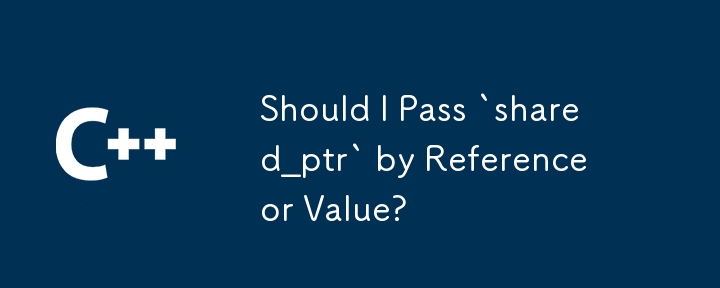

Shared_ptr: Reference vs. Value
When dealing with shared pointers in C , the choice between passing by reference or value can arise. This decision involves considerations of speed, ownership, and potential issues.
Performance
Initially, it may seem that passing by reference (via a const reference) would be faster than passing by value. However, this assumption is not entirely accurate. Modern compilers effectively optimize for both scenarios, making the difference negligible in most cases.
Ownership
Passing by value implies transfer of ownership, while passing by reference retains ownership in the calling function. Unless the intention is to transfer ownership (for example, between data structures or threads), it is preferable to pass by reference.
Additional Considerations
Conclusion
Based on these factors, the recommended practice is to pass shared_ptrs by reference (specifically, by const reference to prevent accidental modification). This ensures ownership remains with the caller, maintains performance, and simplifies code handling.
The above is the detailed content of Should I Pass `shared_ptr` by Reference or Value?. For more information, please follow other related articles on the PHP Chinese website!




